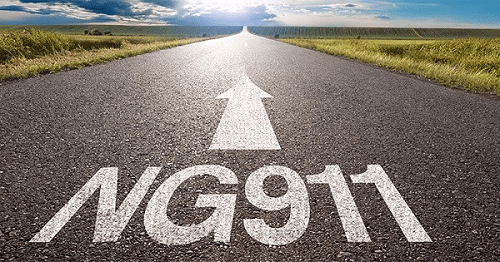
8.10.19 – News Release, U.S. Department of Transportation
WASHINGTON –Friday, August 9, 2019, the U.S. Department of Commerce and the U.S. Department of Transportation announced more than $109 million in grants to 34 states and two tribal nations as part of the 911 Grant Program, which will help 911 call centers upgrade to Next Generation 911 capabilities.
The funding will power basic improvements such as providing digital and IP network capabilities to 911 emergency call centers and will assist the implementation of advanced mapping systems that will make it easier to identify a 911 caller’s location. NG911 will help 911 call centers manage call overload, as call-takers will be able to transfer calls, messages, and data between public safety answering points that are interconnected to the IP network. The 911 Grant Program also provides funding for training costs directly related to NG911 implementation.
“Advances in public safety technology will allow critical information to flow seamlessly from the public, through the 911 networks and on to first responders,” said U.S. Secretary of Commerce Wilbur Ross. “These 911 grant awards are a significant step toward a faster, more resilient emergency system.”
“These grants will boost public safety through 911 systems enhanced with new capabilities such as text message, image and video processing, advanced mapping and other improvements,” said U.S. Secretary of Transportation Elaine L. Chao.
Grants were available to states, territories, tribal nations and the District of Columbia, provided that they successfully submitted a state 911 plan and project budget, designated a 911 coordinator, and certified that they did not use funds designated for 911 systems for other purposes in the past 180 days.
The 911 Grant Program is jointly administered by the Department of Commerce’s National Telecommunications and Information Administration and the Department of Transportation’s National Highway Traffic Safety Administration. For further information on the 911 Grant Program, visit 911.gov and NTIA’s NG911 website.
All states and territories did not apply for funding. Following is a list of grant awards by state and tribal nation:
| State/Territory | Federal Share Award Amount (including supplemental) |
| Alabama | $2,544,360 |
| Arizona | $2,556,830* |
| California | $11,399,076* |
| Colorado | $2,293,943 |
| Connecticut | $1,081,603 |
| District of Columbia | $500,000 |
| Florida | $6,314,048* |
| Georgia | $3,994,283 |
| Hawaii | $196,708 |
| Illinois | $5,336,382* |
| Indiana | $2,800,000 |
| Iowa | $2,590,445* |
| Kansas | $2,759,782 |
| Kentucky | $2,312,695* |
| Maine | $680,741* |
| Maryland | $1,707,856 |
| Michigan | $3,939,670 |
| Minnesota | $3,515,061* |
| Mississippi | $1,957,078* |
| Missouri | $3,267,099 |
| Nebraska | $1,990,409* |
| North Carolina | $3,941,384* |
| North Dakota | $1,473,805 |
| Ohio | $4,302,976 |
| Oklahoma | $2,721,656* |
| Pennsylvania | $4,886,680* |
| South Carolina | $2,333,315* |
| South Dakota | $1,551,790* |
| Tennessee | $3,033,279* |
| Texas | $10,926,740* |
| Utah | $1,332,005 |
| Virginia | $3,066,853* |
| Washington | $2,862,056* |
| Wisconsin | $2,955,325 |
| Tribal Organization | Federal Share Award Amount |
| Prairie Band Potawatomi Nation | $110,876 |
| Citizen Potawatomi Nation | $13,191 |
| Total Award Amount: | $109,250,000 |
*Denotes supplemental award included.
NHTSA and NTIA are responsible for the joint 911 Implementation Coordination Office. The ICO facilitates coordination and communication among public and private stakeholders at local, state, tribal, federal, and national levels.
